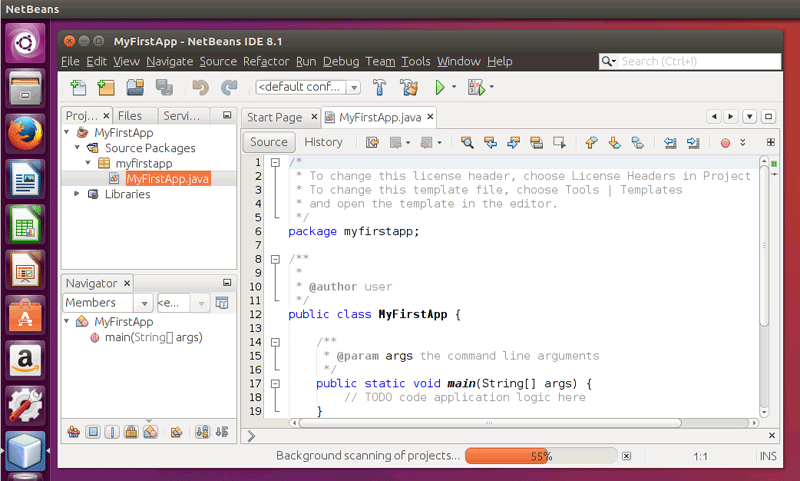

#Netbeans ubuntu how to
However, keeping in mind that this is a work-in-progress piece of software, it runs very smooth and certainly faster than Netbeans 8.2. How to Install NetBeans Using PPA On Ubuntu, Mint & Debian Requirements: A Desktop machine with a minimum of 2GB of RAM.

It must be noted that Netbeans 9.0 is not quite stable, especially the nightly build we're using, even more so when you're importing the existing plugins and settings from your Netbeans 8 installation. Icon=/usr/local/netbeans-9.0/nb/netbeans.pngĬategories=Application Development Java IDEĪfter saving this file, Netbeans 9.0 should show up under the Applications menu. To quickly start Netbeans from Gnome's launcher and add it to Gnome's Applications menu, simply create a file /usr/share/applications/netbeans-9.0.desktop with the following contents: Įxec=/bin/sh "/usr/local/netbeans-9.0/bin/netbeans" Permanently installing Netbeans, is nothing more than copying the files to a proper folder where the executables can exist: sudo cp -r netbeans /usr/local/netbeans-9.0 Creating a Gnome desktop entry (optional) TestingĪ testrun can simply be done by downloading the latest build and then running the executable: unzip NetBeans-dev-incubator-netbeans-linux-*-on-*-release.zip If you're running a different flavour of Linux, you might have to use apt-cache search openjdk to find the latest supported version. To install NetBeans, simply use the following command: sudo snap install netbeans. For example, when running Ubuntu 18, simply run: apt install openjdk-11-jdk If Snap package manager is not already installed then you can install it by running the following command below: sudo apt install snapd. Prerequisitesįirst of all, ensure jdk version 9 or later has been installed (version 8 also works but disables some features). Currently only the nightly build has support for PHP, where the official release hasn't.

Off course, you could also use the more stable, more Official release from Apache's Netbeans page. To get the most out of the Netbeans project for what it currently is, we're using the Nightly build provided by Apache's Jenkins.


 0 kommentar(er)
0 kommentar(er)
